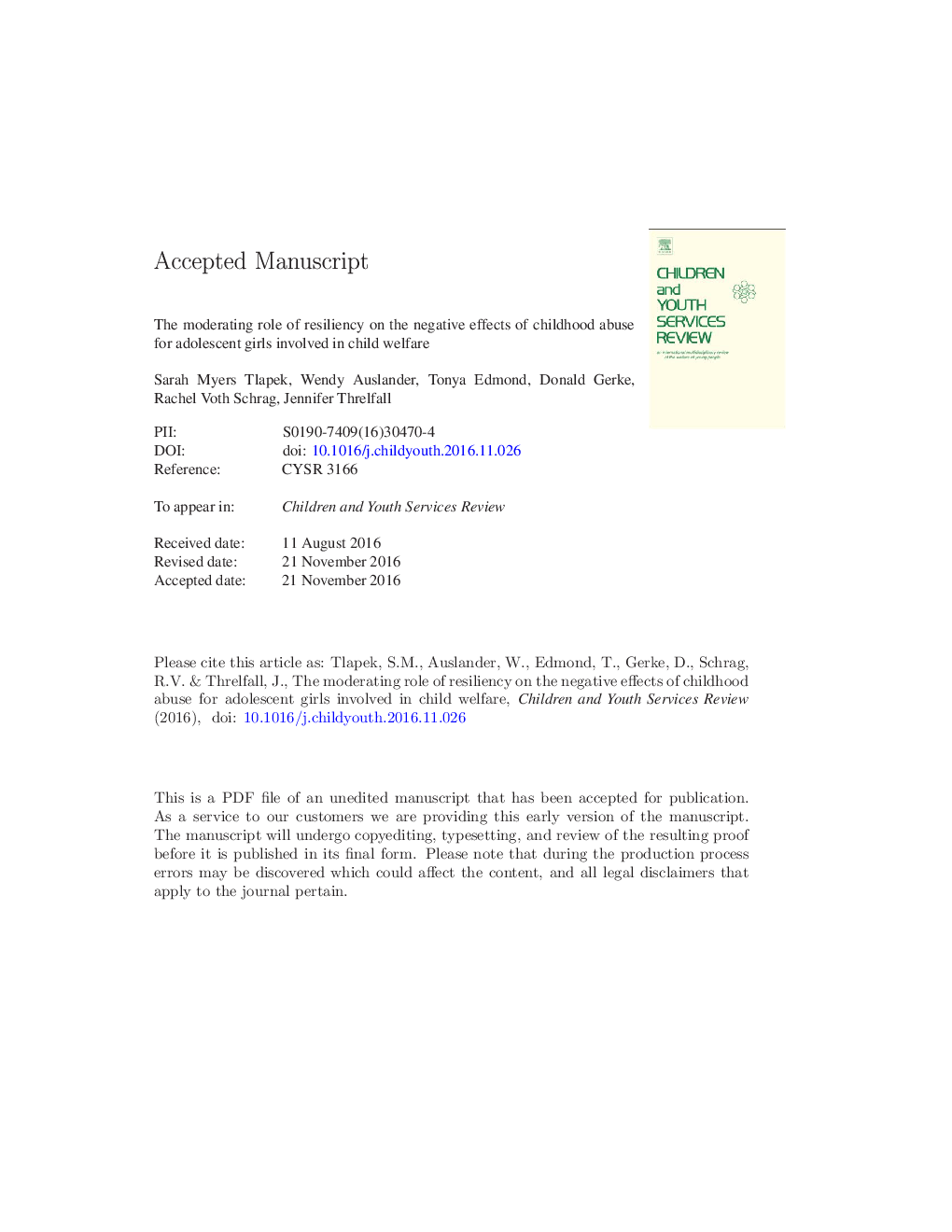ترجمه فارسی عنوان مقاله
نقش تعدیل کننده تسریع در تأثیرات منفی سوء استفاده از کودکی دختران نوجوان در زمینه رفاه کودکان
عنوان انگلیسی
The moderating role of resiliency on the negative effects of childhood abuse for adolescent girls involved in child welfare
| کد مقاله | سال انتشار | تعداد صفحات مقاله انگلیسی |
|---|---|---|
| 116147 | 2017 | 39 صفحه PDF |
منبع

Publisher : Elsevier - Science Direct (الزویر - ساینس دایرکت)
Journal : Children and Youth Services Review, Volume 73, February 2017, Pages 437-444
ترجمه کلمات کلیدی
انعطاف پذیری، بلوغ، کودک آزاری، استرس پس از سانحه، افسردگی، احیای مجدد
کلمات کلیدی انگلیسی
Resiliency; Adolescence; Child abuse; Posttraumatic stress; Depression; Revictimization;

